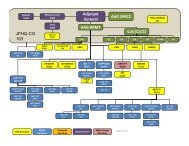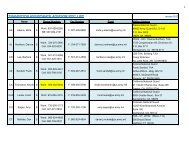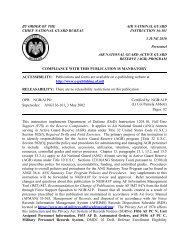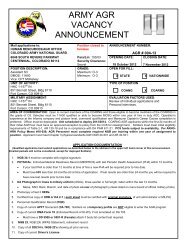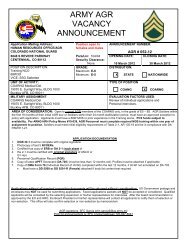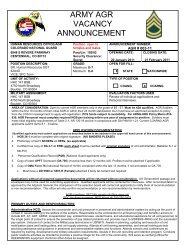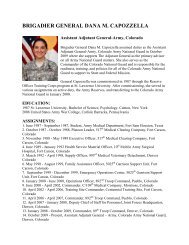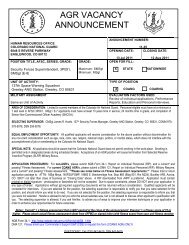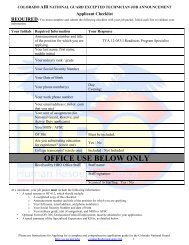Prosecuting Alcohol-Facilitated Sexual Assault - National District ...
Prosecuting Alcohol-Facilitated Sexual Assault - National District ...
Prosecuting Alcohol-Facilitated Sexual Assault - National District ...
You also want an ePaper? Increase the reach of your titles
YUMPU automatically turns print PDFs into web optimized ePapers that Google loves.
T HREE-STEP P R OCESS<br />
• Either statute or case law specifically outlaws having intercourse<br />
with a person who is too intoxicated to consent. 33 In these states,<br />
the victim’s intoxication negates the element of consent, thereby<br />
showing that the sexual act occurred without consent.<br />
• Rape occurs when the defendant has sexual intercourse with a<br />
person who is “mentally incapacitated,” which is generally defined<br />
as being rendered temporarily incapable of appraising his or her<br />
conduct due to the influence of a narcotic, anesthetic, or other<br />
substance. In these jurisdictions, the prosecution generally must<br />
show that the victim was “mentally incapacitated” or “mentally<br />
incapable of resisting due to drugs, alcohol, or an anesthetic.” 34<br />
• Rape occurs when the defendant has intercourse with someone<br />
who is “physically helpless.” In these jurisdictions, the prosecution<br />
can show that the victim was intoxicated to the point of being<br />
physically helpless because she was unconscious, unaware that the<br />
intercourse was occurring, physically powerless, physically incapable<br />
of resisting, or physically disabled due to intoxication. 35<br />
In addition to the elements stated above, some jurisdictions require the<br />
prosecution to prove that the defendant knew that the victim was intoxicated.<br />
36 A victim can become intoxicated by drugs and/or alcohol in three<br />
ways: (1) surreptitious administration by the assailant; (2) mixing of prescription<br />
or over-the-counter drugs with alcohol or recreational drugs; or<br />
(3) recreational use by the victim.This monograph focuses on the latter<br />
two forms of intoxication only. 37<br />
Once the charging theory has been determined, a chart analyzing what<br />
evidence exists regarding each element should be prepared. Can the victim<br />
testify to all elements of the crime? It is not uncommon for victims<br />
who were intoxicated at the time of the crime to forget pieces of the<br />
incident.This may or may not be fatal to a prosecution, depending on<br />
whether other evidence exists. For this reason, the chart is helpful in<br />
visualizing which memory lapses are fatal and which are not.<br />
NDAA<br />
7




